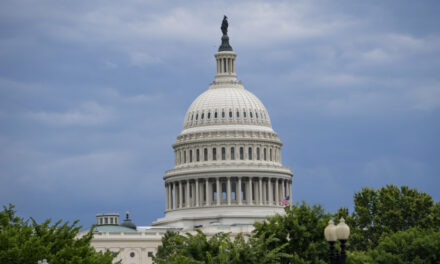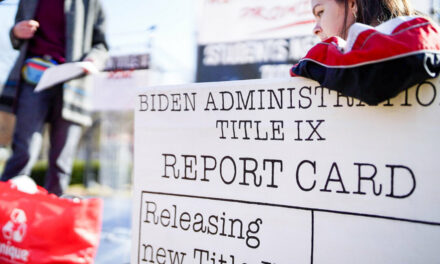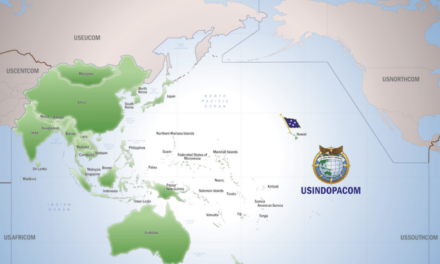We support our Publishers and Content Creators. You can view this story on their website by CLICKING HERE.
Four states have joined the Justice Department’s (DOJ) antitrust lawsuit against tech giant Apple, bringing the total number of co-plaintiffs to 20.
A press release from the DOJ announced that attorneys general in Nevada, Washington, Indianapolis, and Massachusetts joined the suit. The initial lawsuit, brought in March, included 15 states and the District of Columbia as co-plaintiffs.
“We look forward to litigating this important case alongside our state partners to deliver the benefits of competition to consumers, app developers, accessory makers and the American public.”
The Biden administration is accusing Apple of illegally maintaining a monopoly of the smartphone market, in purported violation of the Sherman Anti-Trust Act.
Apple’s Response
The Apple lawsuit is just one of many actions that the DOJ and Federal Trade Commission (FTC) have pursued against allegedly illegal monopolization by Big Tech companies. One of DOJ’s cases against Google saw closing arguments in May and is expected to have potentially significant impacts on the company and industry.
The Sherman Anti-Trust Act was passed in 1890 amid wariness about the growing power of businesses in industries like railroads. It has led to billions of dollars in fines for a long list of companies, according to the DOJ’s website.
Section 2, which the DOJ cited in its complaint against Apple, reads: “Every person who shall monopolize, or attempt to monopolize, or combine or conspire with any other person or persons, to monopolize any part of the trade or commerce among the several States, or with foreign nations, shall be deemed guilty of a felony, and, on conviction thereof.”
Apple previously said the lawsuit, if successful, would “hinder our ability to create the kind of technology people expect from Apple—where hardware, software, and services intersect” and would “set a dangerous precedent, empowering government to take a heavy hand in designing people’s technology.”
“At Apple, we innovate every day to make technology people love—designing products that work seamlessly together, protect people’s privacy and security, and create a magical experience for our users,” the company said in a statement.
“This lawsuit threatens who we are and the principles that set Apple products apart in fiercely competitive markets.”
The company’s attorney argued in May to have the lawsuit dismissed, stating that the “case lies well beyond the outer limits of antitrust law.”
A letter from attorney Liza M. Walsh stated, among other things, that the DOJ failed to define a relevant market or establish that Apple had monopoly power in said market.
The Associated Press and Matthew Vadum contributed to this report.

 Conservative
Conservative  Search
Search Trending
Trending Current News
Current News 







